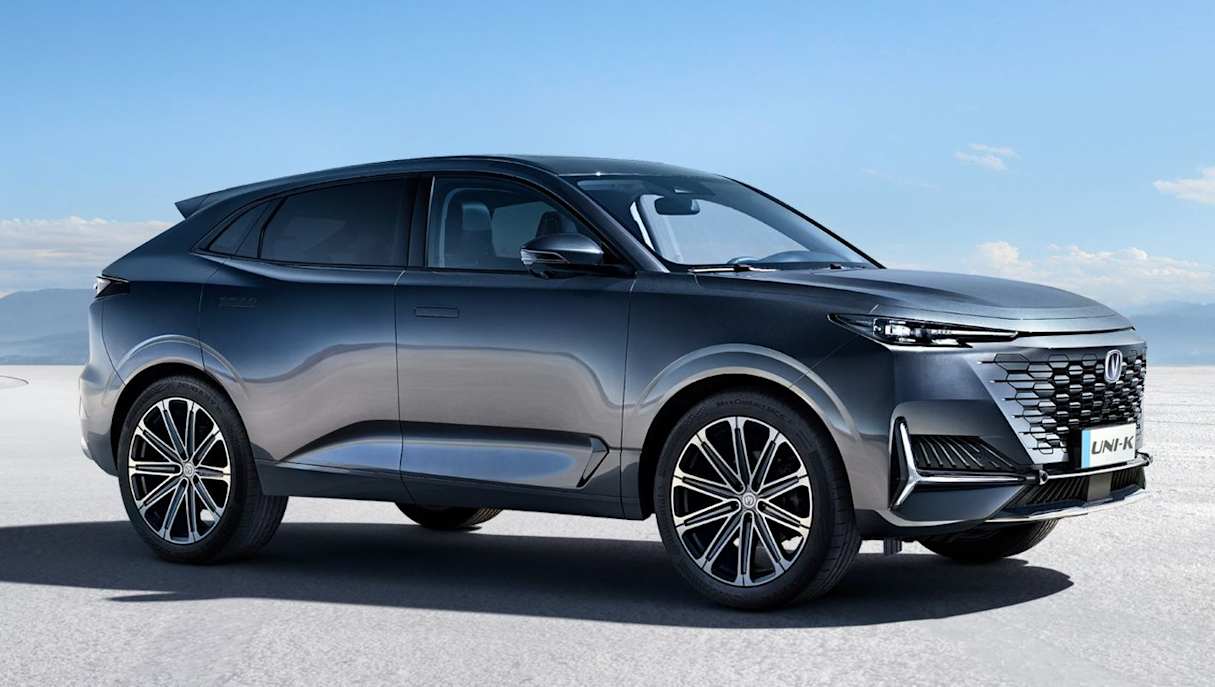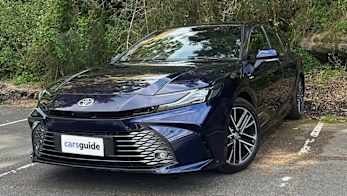“Jim, this is nothing like before…these guys are ahead of us.”
It’s a statement that’s put the entire western automotive industry on notice.
According to the Wall Street Journal, those were the words uttered by Ford’s CFO John Lawler to CEO John Farley as the pair test drove an electric vehicle on a trip to China last year.
The car in question was an electric SUV by Changan automotive, a state-owned electric automaker that is coincidentally a joint venture with Ford.
But you can’t buy them in North America, and nor can you buy any other Chinese EV, which perhaps explains how the pair were so dumbfounded by the car's quiet and smooth ride, as per the Journal.
The US has a 100 per cent tariff on all Chinese vehicles, effectively locking them out of the North American market.
Chinese electric cars have been spurring huge demand domestically and in new markets overseas, largely thanks to generous subsidies from the Chinese government.
Last month China set a global record for EV sales, dispatching one million at home and abroad.
It’s a trend that’s sent shock waves through the industry, particularly as many legacy automakers struggle with high production costs and low EV demand post-Covid.
.jpg)
Much of the success has been off the back of BYD, which is the world's second largest EV maker, briefly topping Tesla as number one in the fourth quarter of last year.
The brand has been instrumental to the country’s automotive industry growth. Last month the company sold a record 373,083 vehicles in China and overseas.
To put that figure into perspective, Toyota – Australia’s top selling automaker – sold 215,240 vehicles in Australia for the entirety of 2023.
According to data procured by Business Insider, Chinese automakers accounted for 88 per cent of the EV market in Brazil and 70 per cent in Thailand in the first quarter of this year.
Globally it is estimated China accounts for 60 per cent of all EVs sold, a figure that is only expected to rise.
Western automakers have uniformly watered down their EV sales ambitions – including Ford – amid dwindling demand.
Volkswagen has even mooted shutting factories in its native Germany for the first time in its 87 year history, citing low demand and increased competition from China.

If Australia is a key indicator of the current state of the automotive world – given its low import barriers and lack of a domestic manufacturing industry – then the future looks bleak for several western brands.
Volkswagen sales have decreased by 12.5 per cent so far this year, Mercedes-Benz by 21.7 per cent, Renault by 34.3 per cent and Audi by 14.7 per cent.
Toyota and Ford continue to enjoy strong sales, up 24.6 per cent and 23.7 per cent respectively this year, but with just two EVs among them and a portfolio that is largely built off the back of diesel-powered vehicles, new emission standards, set to commence in 2025, could present challenging times ahead.
BYD's lineup consists entirely of new energy vehicles, and its sales have increased by 66.9 per cent this year thanks to a growing vehicle portfolio. Chery and GMW have also seen sales increase by 106.4 per cent and 21.8 per cent respectively.
Australia’s top-selling EV, the Tesla Model Y, is also built in China.






.jpg)


.jpg)




.jpg)


.jpg)

.jpg)
.jpg)
.jpg)
.jpg)

.jpg)
.jpg)



